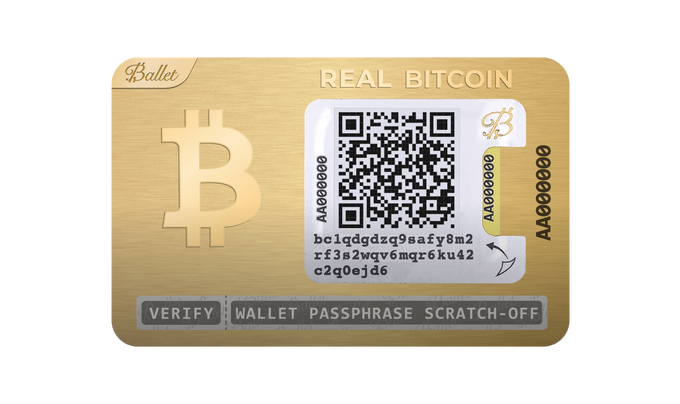As bad as losing money in the current market for cryptocurrencies might be, losing them altogether would be even worse.
By some estimates, some 20 percent of all bitcoin has been lost for various reasons, including theft, forgotten passwords, or wiping out a hard drive, leading to a loss in value of well over $100 billion. What is there to do?
One way to try to get back lost, stolen, or misplaced digital assets is to hire a firm that specializes in recovering them, although the price can be quite steep. One such company is the father and son team that founded cryptoassetrecovery.com which charges 20 percent of the value of the recovered assets. According to a «Business Insider» article last year, the duo estimated that around $4.7 billion is lost assets are recoverable. Still, if you have lost, say $10 million in Bitcoin, that might be a small price to pay.
Going to the Ballet
So much is written about the digital world, that it might be surprising to learn one way to help secure cryptocurrencies is with a physical wallet. These do not have a connection to the internet and are referred to as a cold wallet, while a hot wallet is a form of digital storage accessible via a device or computer.
Ballet is a U.S.-based company that offers a physical wallet having a two-factor cryptographic private key securely concealed on the physical wallet itself, allowing the wallet to function as a bearer asset similar to cash or gold. A companion app, Ballet Crypto, serves as a digital interface for physical Ballet products and provides all the essential functions of a cryptocurrency wallet while allowing private keys to remain securely offline.

A cold wallet would make more sense for someone planning to hold onto a cryptocurrency for a longer period. The drawback of losing a cold wallet is that you lose access to your investments, and the investor is in the same boat trying to recover assets.
From Freeports to Fintech
While the exact origins of freeports are subject to debate, the idea took hold around the time of the Renaissance as a way of attracting trade. Modern versions are often at airports and outside of customs areas. Malca-Amit is one company that has numerous vaulting facilities at several airports globally, including Zurich, where it offers storage for high-value assets including diamonds, gems, jewelry, gold, and other precious metals.
In addition, it provides services the for luxury goods industry, high-net-worth individuals, and international banks access to a global team of experts in logistics, security, customs houses, and special operations (i.e. security) professionals.
It also provides courier services for those goods and transportation of artworks. So that Warhol or Picasso you bought in New York and needs to be shipped to your home, Malca-Amit will handle the door-to-door delivery.
It is now taking its experience in this traditional business of protecting and storing assets by offering physical vault protection to digital assets, in what they call «deep cold» storage either for individual clients or as a custodial service.
What this means is the «private key required to access the digital assets is secured offline, as part of the customer’s physical wallet, which we protect in state-of-the-art facilities. These are the same facilities used to safeguard the assets of investment-grade banks, luxury brands, and digital asset custodians» explains Mark Titmarsh, who is head of digital assets at Malca-Amit.
Titmarsh stresses that if a private key is lost or it is stolen, the thief has control of the assets in the case of theft. By physically storing wallets, customers remain in control of their private keys. «This is because the private key is only generated when both private key elements on the physical Ballet wallet are combined, which are protected under seal. Whilst the wallet is in our care the private key elements will never be revealed. It’s pretty simple, we provide the physical infrastructure to keep the wallet and private key elements safe» he says, noting that the firm is backing the assets against loss with full liability coverage.
Casascius Coins
While digital bitcoin is online on the blockchain, the Casascius coin can only be accessed by the person in possession of the coin's private key, which is stored under a tamper-proof hologram that allows the owner of the physical coin to claim the associated Bitcoin.
Holders of Casascius coins, which were introduced in 2011, can also be storied with Malca-Amit and are also covered by the same liability insurance.
You Can't Take it With You
Another way cryptocurrencies can be lost is when their owner dies, taking passwords and seed phrases along with them. According to a study conducted in 2020, nearly 90 percent of investors are concerned about what happens to their crypto assets when they shuffle off their mortal coil. One part of the issue is complacency, another the lack of crypto estate services. This is where Malca-Amit has found another market niche to enter.
«We’ve made storing and passing assets on much easier because our service doesn’t require customers to create seed phrases, passwords, or PINs. Our customers can store their digital assets on Ballet wallets, which can be released to trusted beneficiaries when needed. This physical wallet contains the only private key elements needed to access the crypto assets handed down. The wallet can also be passed on as a physical bearer asset, cutting out the complexity further for those who are not crypto-native», says Titmarsh.
«The innovation in this industry is great, but innovation needs security», he adds.




































